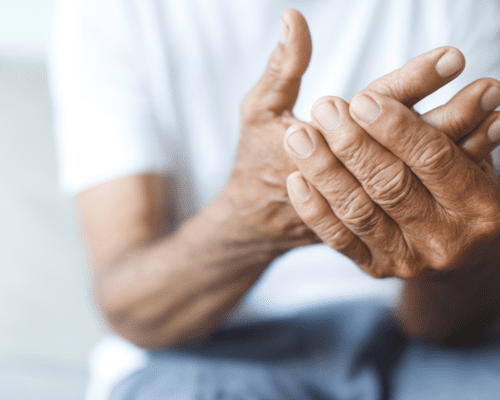The Most Telling Signs of Nursing Home Abuse

Nursing home abuse is a pressing issue that demands our attention. Identifying and addressing abuse in these facilities is key to ensuring the safety and well-being of vulnerable residents. The fight against nursing home abuse demands our collective vigilance and commitment to protecting individuals residing in care facilities. By recognizing the signs of physical, emotional, financial, and neglectful abuse, we empower ourselves to intervene and ensure the well-being of our loved ones.
Understanding Nursing Home Abuse
Nursing home abuse encompasses a range of harmful behaviors that residents may endure in care facilities. This includes physical, emotional, financial, and neglectful forms of mistreatment. Recognizing these different manifestations is essential for safeguarding the rights of nursing home residents.
Signs of Physical Abuse
Spotting signs of physical abuse in nursing homes involves being vigilant for unexplained changes in senior residents. Recognizing and investigating these unexplained variations in a resident’s well-being is essential to uncover potential instances of physical abuse, ensuring prompt intervention and protection for those in vulnerable situations. Common signs of abuse include:
- Unexplained bruises, cuts, or fractures: Visible injuries without a reasonable explanation may indicate physical abuse.
- Sudden weight loss or malnutrition: Neglect in providing proper nutrition can lead to abrupt weight loss.
- Changes in behavior or mood: Drastic shifts in behavior may be a result of physical mistreatment.
- Fear or discomfort around specific staff members: Residents displaying fear or discomfort may be experiencing abuse at the hands of specific individuals.
Signs of Emotional Abuse
The overarching principle in identifying signs of emotional nursing home abuse revolves around observing significant and unexplained changes in the resident’s emotional well-being and behavior. Some signs to look out for are:
- Unexplained withdrawal or sudden changes in social interactions: Victims may isolate themselves due to emotional distress.
- Unusual changes in sleep patterns: Disruptions in sleep can be indicative of emotional turmoil.
- Emotional distress, depression, or anxiety: Persistent negative emotions may suggest emotional abuse.
- Fearful or anxious behavior: Constant anxiety or fearfulness may be a response to maltreatment.
Signs of Financial Abuse
Being attentive to any unexpected or questionable financial occurrences is paramount in preventing and addressing financial exploitation in nursing home settings. Be on the lookout for the following signs:
- Unexplained withdrawals from the resident’s account: Unauthorized transactions may point to financial exploitation.
- Missing personal belongings or valuables: Theft of personal items is a red flag for financial abuse.
- Sudden changes in the resident’s financial situation: Drastic alterations in financial status may be a result of exploitation.
- Unauthorized or coerced changes to legal documents: Illegitimate alterations to wills or power of attorney documents signal potential financial abuse.
Signs of Neglect
The central principle in looking out for signs of neglect in nursing homes is to be attentive to the overall well-being and living conditions of residents. Neglect may manifest in various ways, including:
- Poor personal hygiene and unsanitary living conditions: Neglect can manifest in the failure to maintain proper hygiene standards.
- Untreated medical conditions or lack of medical attention: Neglected health issues indicate a failure to provide necessary medical care.
- Dehydration or malnutrition: Inadequate sustenance is a clear sign of neglect.
- Bedsores or other signs of inadequate care: Physical manifestations of neglect, such as bedsores, should not be ignored.
Reporting Suspected Abuse in Houston
If someone suspects nursing home abuse, it is crucial to take immediate and appropriate action to ensure the safety and well-being of the resident. Here are the steps to follow:
- Document the signs: Carefully document any signs or evidence of abuse, including dates, times, locations, and descriptions of observed incidents. Photographs may be helpful in cases of physical abuse or neglect.
- Speak to the resident: If possible, talk to the resident privately and express concern. Listen to their experiences and take note of their perspective on the situation.
- Contact the nursing home management: Inform the management of the nursing home about your concerns. They have a responsibility to investigate and address any allegations of abuse.
- Report to authorities: Contact the appropriate authorities to report the suspected abuse. This may include the local adult protective services, long-term care ombudsman, or law enforcement.
- Seek medical attention: If the resident has suffered physical harm, seek medical attention promptly. Document any injuries and obtain medical records that may serve as evidence.
- Consult with a Houston nursing home abuse attorney: If nursing home abuse is suspected, consulting with a personal injury lawyer who specializes in elder abuse cases is advisable. They can provide guidance on legal options and potential courses of action.
If any signs of abuse are observed, it’s important to document and report them promptly. Reporting ensures that necessary actions are taken to address the situation and protect the resident.
Legal Recourse for Victims
In cases of nursing home abuse, victims have legal options to pursue justice. Consulting with a Houston nursing home abuse lawyer is essential to understanding these options and navigating the legal process. Taking legal action not only seeks justice for the victim but also contributes to holding negligent parties accountable.
DK Law Is Here To Help
If you suspect nursing home abuse, don’t hesitate to take action—contact our Houston legal team at DK Law. We believe that those who have neglected or abused your loved one must be held responsible. We offer a free consultation to discuss your concerns and explore legal options. Call us at (281) 402-8856 today.